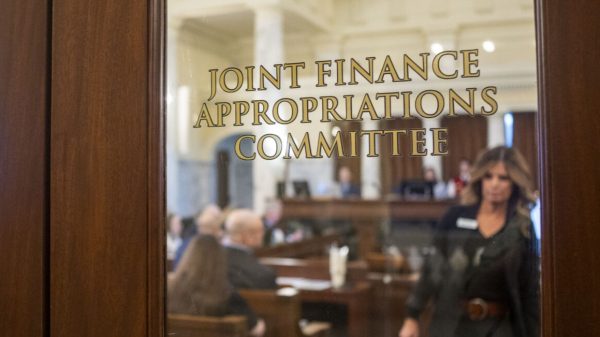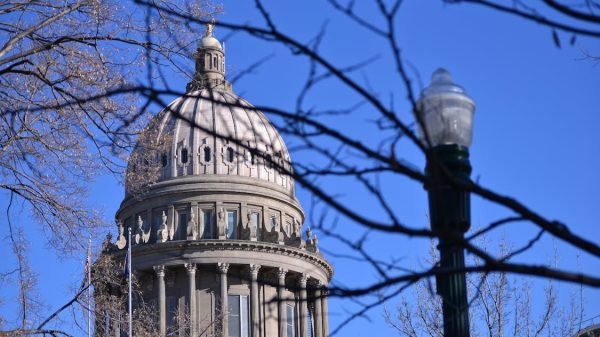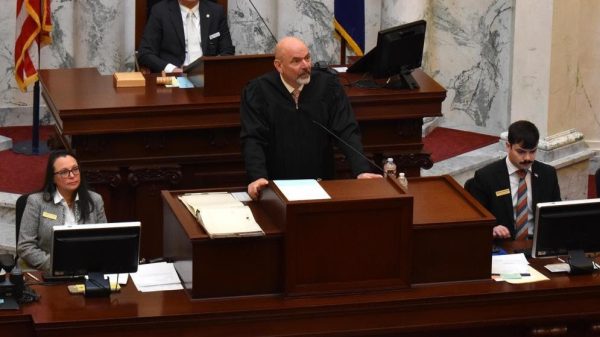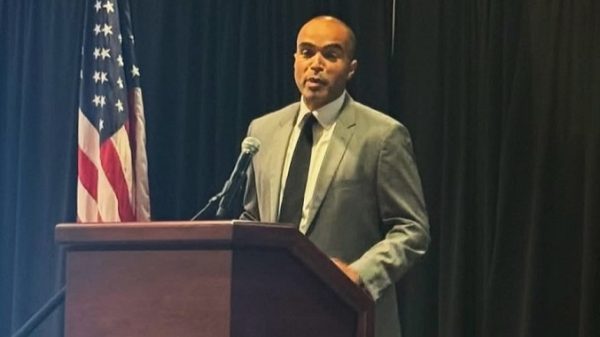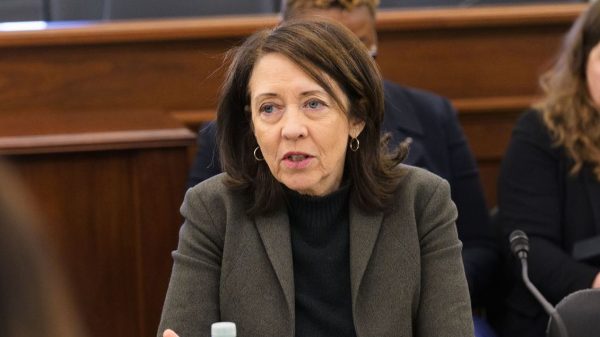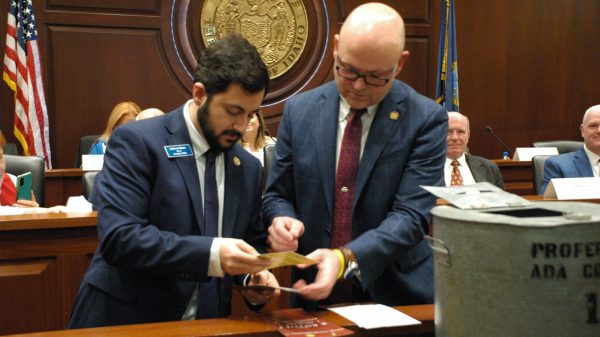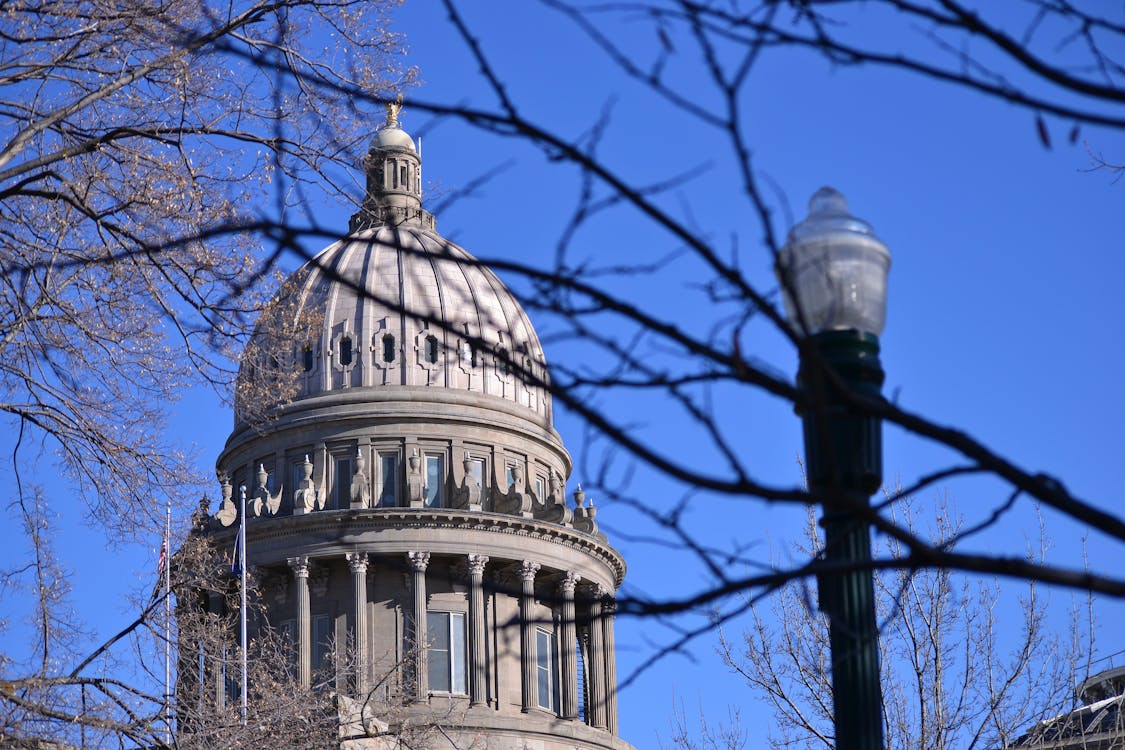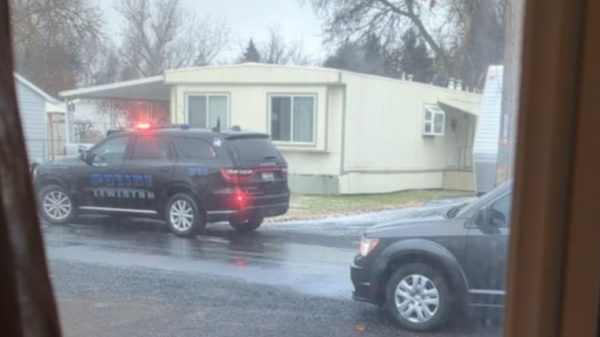(Boise, ID), Only five states – Idaho, Utah, South Carolina, Oklahoma and Mississippi – have laws that allow a state to execute a death row inmate via firing squad, but Idaho is one step closer to becoming the first state in the nation making the firing squad its main method of execution.
After years of the Idaho Department of Correction struggling to acquire lethal injection drugs from pharmacies, Rep. Bruce Skaug, R-Nampa, is sponsoring House Bill 37 to make lethal injection an alternative method of Idaho executions and elevate the firing squad to its main method.
On the Idaho House floor on Thursday, Skaug said he believes death by firing squad is a more humane execution method because it is “quick” and “certain.” He also argued that the firing squad would reduce legal appeal issues in the court system and reduce failed execution attempts – like the state’s failed attempt to execute death row inmate Thomas Creech in February 2024 when it could not establish an IV line to administer the drugs.
After 10 minutes of deliberation, the House passed the bill 58-11 on a nearly party-line vote. All nine House Democrats opposed the bill, along with two Republican House lawmakers: Rep. Lori McCann, from Lewiston, and a substitute legislator for Rep. Josh Wheeler, from Ammon.
Redesigning the state’s execution chamber for a firing squad cost $313,915, Idaho Department of Correction spokesperson Kuzeta-Cerimagic told the Idaho Capital Sun. But the chamber’s full renovations are initially estimated to cost $952,589, she said.
She also confirmed the agency is considering using “a remote-operated weapons system alongside traditional firing squad methods” to carry out executions. But the agency had not finalized its policies and procedures for a firing squad, she said in a Tuesday email to the Sun.
The bill now heads to the Idaho Senate for consideration. It would have to pass the Senate and avoid Gov. Brad Little’s veto to become law.
Joint Finance-Appropriations Committee approves pay increases for all state employees
After failing to find consensus on proposals to increase pay for Idaho’s 25,000 state employees on Jan. 16 and Jan. 31, the Legislature’s powerful budget committee on Thursday approved new raises.
Under the plan, all state agencies would receive funding to cover raises of $1.55 per hour for all full-time permanent positions. Agency directors and institution presidents would then have flexibility to use that money to distribute raises of no less than $1.05 per hour and no more than $1.55 per hour – based on merit. If agencies do not award the full $1.55 pay increases, the additional funding left over must be returned to the Idaho Legislature.
But some employees will earn even more under that plan. The state’s IT and engineering employees would receive salary increases of 4.5%. Idaho State Police troopers would receive increases not to exceed 8%. Health care and nursing state employees would receive raises of $1.55 per hour or 3%, whichever amount is greater.
The pay increases for state employees will be built into the maintenance of operations budgets for all state agencies and departments that JFAC set Jan. 17. The maintenance budgets will then be sent to the Idaho House of Representatives and Idaho Senate for consideration.
Legislation of interest during the fifth week of the 2025 session
- House Bill 93: The Idaho House passed on Friday in a 42-28 vote the bill that provides a refundable tax credit up to $5,000 for a parent of homeschooled or private school students to pay for expenses including tuition and fees, tutoring, textbook costs, curriculum and transportation. The refundable tax credit is increased to $7,500 for special needs students. The bill may be considered by the Idaho Senate in the coming days of the session.
- House Bill 40: The Idaho House passed on Monday in a 63-7 vote a bill that would reduce Idaho’s individual and corporate income tax rates from 5.695% to 5.3%. It was referred to the Senate’s Local Government and Taxation Committee and may be taken up in the coming days of the session.
- House Bill 158: Sponsored by Reps. Marco Erickson and Barbara Ehardt, both R-Idaho Falls, the bill would establish a media shield law to protect sources who provide journalists with confidential information. The bill may be taken up by the House Judiciary, Rules and Administration Committee in the coming days of the session.
- House Bill 83: Sponsored by Rep. Jaron Crane, R-Nampa, the bill would create a new crime known as illegal entry and allow local law enforcement to engage in immigration enforcement. The Idaho House State Affairs Committee voted to advance the bill to the House floor with a recommendation that it pass. It has been filed on the House’s third reading calendar and may be heard in the coming days of the session.
- House Bill 26: Sponsored by Idaho State Treasurer Julie Ellsworth, the bill would allow people with disabilities to establish ABLE accounts. “ABLE,” an acronym for Achieving a Better Life Experience, allows people with disabilities who collect Social Security Income to save money for future qualifying needs, such as transportation, housing or medical expenses. The Idaho House Health and Welfare Committee advanced the bill to the full Idaho House with a recommendation that it pass. The bill is on its third reading calendar and may be taken up in the coming days of the session.
- Senate Concurrent Resolution 103: Introduced by Sen. Ali Rabe, D-Boise, on Tuesday, the resolution would establish a bipartisan working group to study housing availability and affordability, as well as land use regulations that affect housing. It may be taken up by the Idaho Senate in the coming days of the session.
- Senate Bill 1025: Sponsored by Sen. Dave Lent, R-Idaho Falls, the bill would expand the state’s Empowering Parents program by $20 million to be able to cover costs such as tuition for students at private, public and home schools and includes $30 million in funding to support special education. It was advanced by the Senate Education Committee without a recommendation on whether it pass or fail. It was filed on the Senate’s third reading calendar and may be taken up in the coming days of the session.
What to expect next week
Monday will be a busy day at the Statehouse because Feb. 10 is the deadline for state lawmakers to introduce new legislation – with some exceptions for certain privileged committees. Those committees are:
- The Joint Finance-Appropriations Committee, the Legislature’s budget committee
- Senate Judiciary and Rules Committee
- Senate State Affairs Committee
- House Education Committee
- House Health and Welfare Committee
- House Revenue and Taxation Committee
- House State Affairs Committee
- House Ways and Means Committee
As of 3 p.m. Friday, at least 22 pieces of legislation are scheduled to be introduced and at least 11 other pieces of legislation are scheduled for full public hearings on Monday. To see the full schedule, click on the “all available Senate committee agendas” link and the “all available House committee agendas” link on the right side of the Legislature’s website.
According to the Legislative Services Office, legislators have prepared more pieces of legislation by the fourth week of the session ending Jan. 31 compared to the same time frame in the last five years. There are 422 pieces of legislation that have been prepared by Jan. 31 in 2025 compared to just 320 in 2023, for example.












